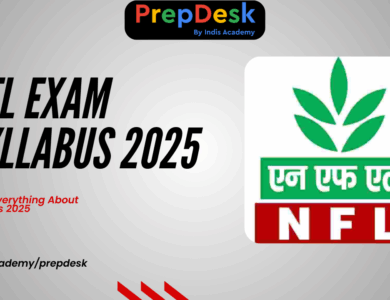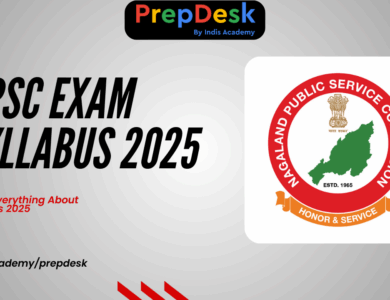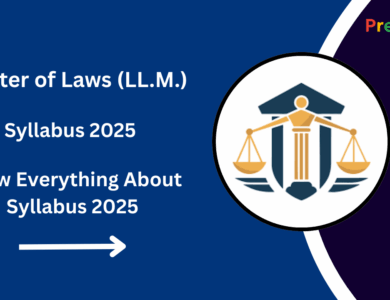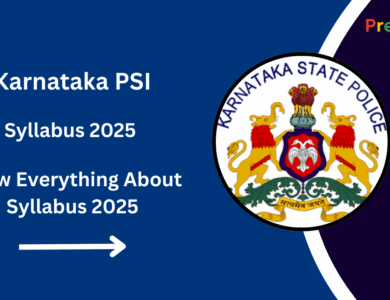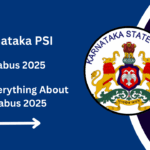Bachelor of Pharmacy (B.Pharm) Syllabus: Detailed Semester Breakdown
Delve into the B.Pharm syllabus with a detailed semester-wise breakdown, including core subjects like Pharmaceutics, Pharmacology, and Medicinal Chemistry, along with electives and practical sessions. Ideal for prospective pharmacy students.
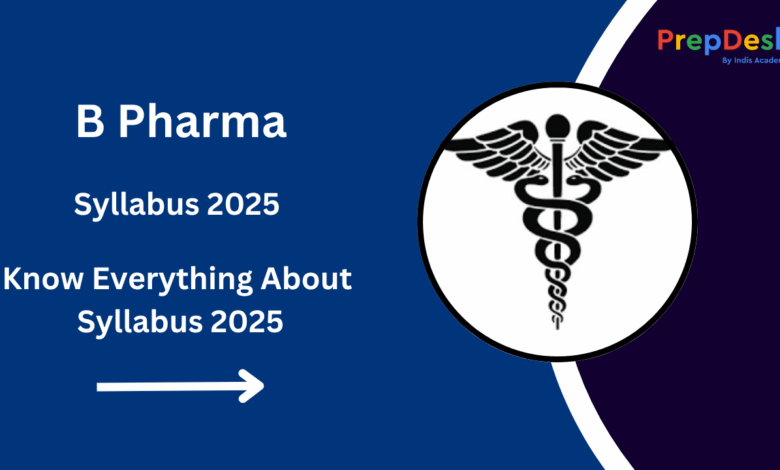
Introduction:
Bachelor of Pharmacy (B Pharm) is a highly sought-after undergraduate course that spans four years and equips students with comprehensive knowledge of pharmaceutical sciences. The course is designed to develop expertise in drug formulation, analysis, pharmacology, pharmacognosy, and pharmaceutical jurisprudence among other critical areas.
Understanding the B Pharm syllabus is crucial for students to plan their studies effectively, stay aligned with their university curriculum, and excel in exams. This article provides a semester-wise breakdown of all subjects, detailed topic-wise descriptions, the number of questions typically asked in exams, syllabus PDF download links, recommended books, and expert preparation tips to guide you toward academic success.
Semester-wise B Pharm Syllabus: Subjects, Topics & Question Pattern
Year 1: Semester 1 & 2
| Semester | Subject | Key Topics Covered | Description | Approx. Number of Questions |
|---|---|---|---|---|
| 1st | Pharmaceutical Chemistry-I | Atomic structure, Chemical bonding, Functional groups, Organic chemistry basics | Introduction to chemical principles for pharmacy | 30-35 |
| 1st | Pharmaceutics-I | Dosage forms, Drug routes, Pharmaceutical calculations | Basics of drug formulation and administration | 30-35 |
| 1st | Human Anatomy & Physiology-I | Cell structure, Tissues, Digestive & Respiratory systems | Study of human body structure and functions | 30-35 |
| 1st | Pharmaceutical Analysis-I | Analytical chemistry principles, Acid-base titrations, Gravimetric analysis | Techniques of quantitative and qualitative analysis | 25-30 |
| 1st | Communication Skills | Grammar, Verbal and Non-verbal communication, Writing skills | Development of communication proficiency | 20-25 |
| 2nd | Pharmaceutical Chemistry-II | Organic reactions, Stereochemistry, Carbohydrates, Amino acids | Advanced organic chemistry relevant to pharmaceuticals | 30-35 |
| 2nd | Pharmaceutics-II | Pharmacokinetics, Drug absorption, Distribution, Metabolism | Study of drug behavior in the body | 30-35 |
| 2nd | Human Anatomy & Physiology-II | Nervous system, Muscular system, Endocrine system | Functioning of major body systems | 30-35 |
| 2nd | Pharmaceutical Analysis-II | Instrumental methods: UV, IR Spectroscopy, Chromatography basics | Introduction to instrumental drug analysis techniques | 25-30 |
| 2nd | Environmental Science | Pollution control, Waste management, Environmental laws | Environmental aspects related to pharmaceutical practice | 15-20 |
Year 2: Semester 3 & 4
| Semester | Subject | Key Topics Covered | Description | Approx. Number of Questions |
|---|---|---|---|---|
| 3rd | Pharmacognosy-I | Natural drug sources, Plant morphology, Extraction methods | Study of drugs from natural sources and their preparation | 35-40 |
| 3rd | Pharmaceutical Analysis-III | Advanced titrations, Pharmaceutical calculations | Quantitative analytical methods | 35-40 |
| 3rd | Pathophysiology | Disease processes: Inflammation, Shock, Cardiovascular diseases | Mechanisms of disease | 35-40 |
| 3rd | Microbiology | Microbial structure, Sterilization, Immunology | Role of microbes and sterilization in pharmacy | 30-35 |
| 3rd | Pharmaceutical Jurisprudence | Pharmacy laws, Drug and Cosmetics Act, Narcotic regulations | Legal aspects of pharmacy practice | 20-25 |
| 4th | Pharmacognosy-II | Phytochemistry of alkaloids, glycosides, fixed oils, volatile oils | Chemistry of natural drug constituents | 35-40 |
| 4th | Pharmaceutical Analysis-IV | Advanced instrumental methods: Fluorimetry, NMR, Mass Spectrometry | Instrumental analytical techniques | 35-40 |
| 4th | Pathophysiology-II | Respiratory, Gastrointestinal, Liver, Renal diseases | Pathology of major organs | 35-40 |
| 4th | Microbiology-II | Antibiotics, Vaccines, Sterility testing | Advanced microbiological pharmaceutical applications | 30-35 |
| 4th | Pharmaceutical Jurisprudence-II | Drug licensing, Manufacture, Ethical aspects | Pharmacy regulation and ethics | 20-25 |
Year 3: Semester 5 & 6
| Semester | Subject | Key Topics Covered | Description | Approx. Number of Questions |
|---|---|---|---|---|
| 5th | Pharmacology-I | General pharmacology, Autonomic nervous system drugs, CNS drugs | Study of drug interactions and effects on body systems | 40-45 |
| 5th | Medicinal Chemistry-I | Drug design, Chemistry of antimicrobials, analgesics | Drug chemistry fundamentals | 40-45 |
| 5th | Pharmacognosy-III | Herbal formulations, Standardization of herbal medicines | Application of pharmacognosy in herbal products | 35-40 |
| 5th | Biochemistry | Biomolecules, Metabolism, Enzymes | Biochemical principles relevant to pharmacy | 35-40 |
| 5th | Pharmaceutical Jurisprudence-III | Drug regulatory affairs, Clinical trials | Regulations governing drug trials | 25-30 |
| 6th | Pharmacology-II | Cardiovascular, Respiratory, Gastrointestinal, Hormonal drugs | Specific therapeutic drug classes | 40-45 |
| 6th | Medicinal Chemistry-II | CNS drugs, Chemotherapy agents, Cardiovascular drugs | Advanced medicinal chemistry | 40-45 |
| 6th | Pharmacokinetics | Absorption, Distribution, Metabolism, Bioavailability | Study of drug fate in the body | 35-40 |
| 6th | Quality Assurance | GMP, Quality control methods, Documentation | Ensuring quality in pharma manufacturing | 30-35 |
| 6th | Pharmaceutical Biotechnology | Recombinant DNA technology, Fermentation, Vaccine technology | Biotechnology in drug development | 30-35 |
Year 4: Semester 7 & 8
| Semester | Subject | Key Topics Covered | Description | Approx. Number of Questions |
|---|---|---|---|---|
| 7th | Industrial Pharmacy | Scale-up production, Sterile product manufacturing, Packaging | Large scale pharmaceutical manufacturing | 45-50 |
| 7th | Clinical Pharmacy | Therapeutic drug monitoring, Adverse drug reactions, Patient counseling | Pharmacy practice in clinical settings | 40-45 |
| 7th | Pharmaceutical Biotechnology-II | Monoclonal antibodies, Stem cell technology, Gene therapy | Advanced biotech applications | 35-40 |
| 7th | Research Methodology | Research design, Data analysis, Statistics | Foundations of pharmaceutical research | 30-35 |
| 8th | Regulatory Affairs | Drug approval, International regulations, Pharmacovigilance | Regulatory frameworks for pharma industry | 40-45 |
| 8th | Electives (varies) | Clinical research, Cosmetics, Nutraceuticals, Herbal drug technology | Specialized topics based on university/program | 30-40 |
| 8th | Project Work | Dissertation or industry-based project | Application of theoretical knowledge in practical setting | Practical |
Download B Pharm Syllabus PDF
Access the complete, semester-wise detailed B Pharm syllabus in PDF format here:
(*Note: Replace the link with your university’s official syllabus PDF link*)
Recommended Books for B Pharm Subjects
| Subject | Book Title | Author(s) / Publisher |
|---|---|---|
| Pharmaceutical Chemistry | Textbook of Pharmaceutical Chemistry | Prof. K.G. Bothara |
| Pharmaceutics | Lachman’s Theory and Practice of Industrial Pharmacy | Lachman, Lieberman, Kanig |
| Pharmacology | Essentials of Medical Pharmacology | K.D. Tripathi |
| Pharmacognosy | Pharmacognosy | C.K. Kokate, A.P. Purohit |
| Pharmaceutical Jurisprudence | Pharmacy Law | S.K. Kabra |
| Microbiology | Textbook of Microbiology | Ananthanarayan |
| Pharmaceutical Analysis | Quantitative Analysis of Drugs | A.H. Beckett |
Preparation Tips for B Pharm Students
- Understand the syllabus: Thoroughly review semester-wise syllabus to prioritize study topics.
- Create a study timetable: Allocate daily slots for theory, practicals, and revision.
- Focus on concepts: Build strong foundational knowledge, especially in core subjects like pharmacology and pharmaceutics.
- Practical skills: Pay special attention to lab work and practical examinations.
- Use standard textbooks: Follow recommended books and supplement with online resources.
- Solve past papers: Practice previous years’ question papers to understand exam patterns.
- Group study: Discuss difficult topics with peers for better retention.
- Stay updated: Keep track of new pharmaceutical regulations and drug discoveries.
- Health is wealth: Take breaks, eat healthy, and get adequate rest to maintain focus.
Conclusion
The B Pharm syllabus is comprehensive and demands dedicated effort throughout the four years. A clear understanding of the semester-wise syllabus, consistent preparation, and practical experience are key to success. With the right resources and study strategies, you can excel in your exams and build a rewarding career in the pharmaceutical field.
Download your detailed syllabus PDF, refer to recommended books, follow the preparation tips, and start your journey toward becoming a skilled pharmacist today!
If you want assistance with mock tests, subject-wise notes, or detailed study plans, just ask!
